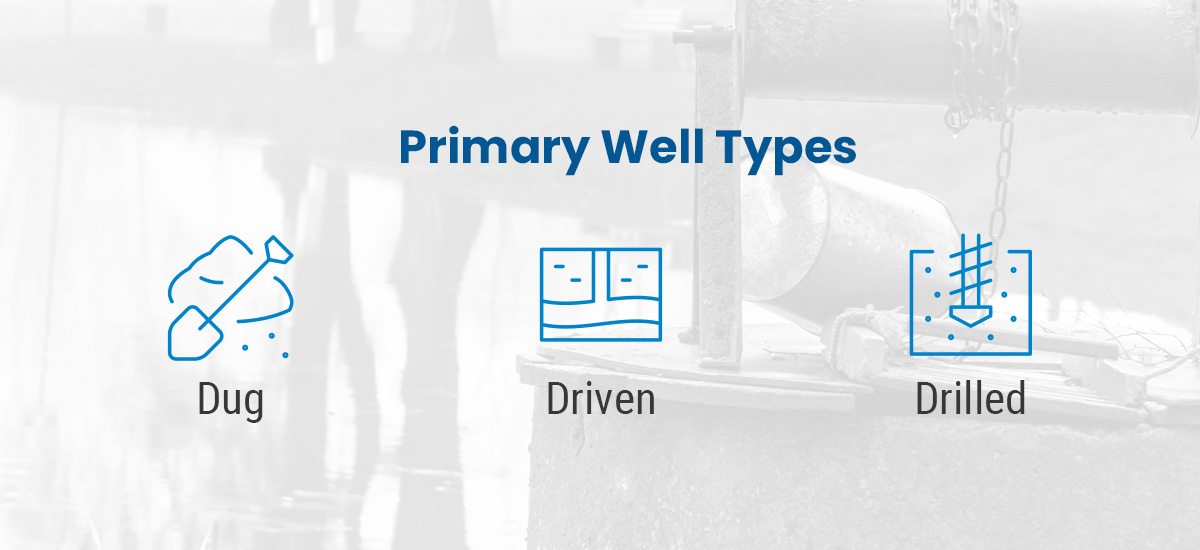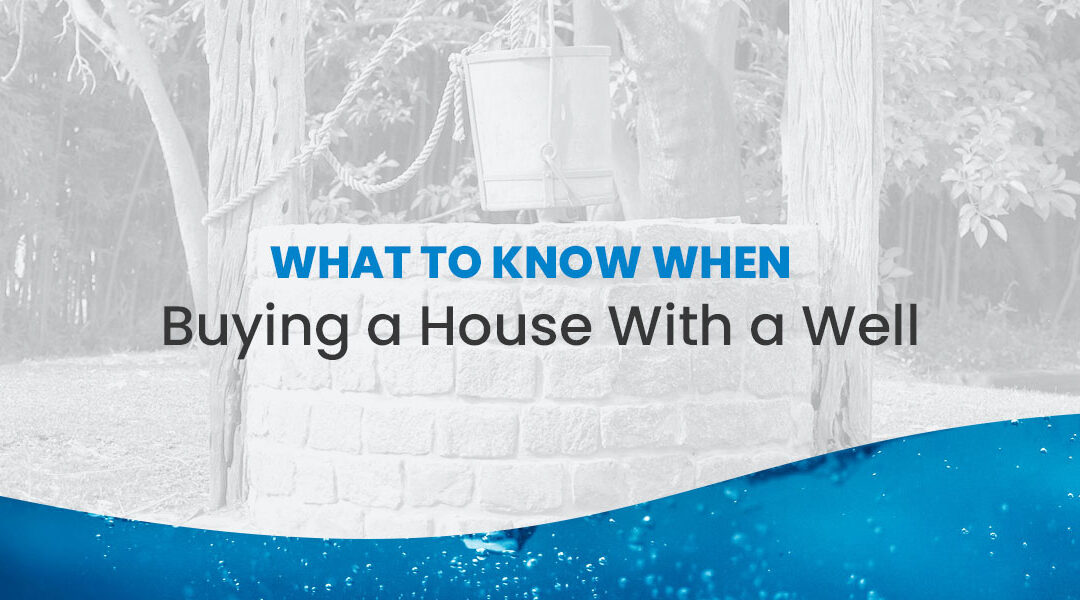Table of Contents
You’re narrowing down the housing search, picking the homes you want to check out. Maybe you’ve even found the one you love — it checks all the boxes and fits perfectly into your price range. There’s only one issue — it has a well.
Learning a house has a well can be an intimidating aspect of the homebuying process, as you may not be familiar with wells and how they operate. But this shouldn’t deter you from buying the house of your dreams.
Remembering a few things and asking some helpful questions will be all you need to learn more about a house with a well.
Quality
Try to get a rough idea of the well’s overall quality. If you’re considering purchasing the home, have the water tested to ensure its quality. Quality can impact the taste of well water and other essential factors.
Have a professional service help with this step to be confident in the results. After all, water is an integral part of our lives, from washing dishes to taking a shower. Making sure your well produces safe water will give you the confidence you need to decide on the home.
Quantity
After testing the water, you might be satisfied with the results. However, that’s only one aspect to consider — you’ll also want to ensure the well can provide sufficient water to your household.
Figure out the depth of your well to determine how much water it can hold and the flow rate. The average person uses around 80 to 100 gallons per day, and if you have a family, you’ll have to incorporate this usage into the total.
Age
Find out how old the well is. If it’s been there for decades, you’ll likely have to budget some replacement parts into your expenses. Even for newer wells, it’s vital to prepare for replacements.
Property Size
Properties with wells are usually expansive — there must be plenty of room for the septic tank to draw wastewater from your home and away from the well. After a while, your septic tank may fail, leaking contaminated water. If your property is large enough, there will be plenty of room between the leak and your well to alleviate problems.
Type
A significant aspect to consider is the type of well you’re dealing with. There are three primary types.
- Dug: Also known as bored wells, these wells’ construction involves digging a hole with a shovel and then lining it with materials such as bricks or tile for stability. Because of its imprecise construction, this is not a very reliable well type.
- Driven: These wells draw water from aquifers near the surface. Their shallow nature makes them liable to contamination.
- Drilled: To create these wells, powerful machines excavate the earth, burrowing hundreds of feet into the ground. With its continuous casing to prevent contaminants and great depths, this is easily the most reliable well type.

Questions to Ask When Buying a Home With a Well
When you’re buying a home with well water, you’ll want to be as thorough as possible so you know what you’re getting into. Asking the right questions will help you clarify the responsibility you’re taking on.
What Is the Nearby Water Quality Like?
You’ll be drawing from the local groundwater, so you’ll want to assess its quality and be confident in its safety. Note any recent problems or continuing issues associated with the local water supply options and keep them in mind for the future.
What Are the Local Regulations?
Various areas will have different regulations for wells. Many of these local do’s and don’ts will concern the well’s structure or testing water quality. Make sure you identify these laws early to avoid any surprises down the road.
How Far Away Is the Septic System?
As mentioned earlier, a septic system that’s too close to a well could pose a problem. If the system leaks, it could risk contaminating your well water. If you have a drilled well and a large property with adequate space between the well and septic system, you should be free from these issues. Make sure you get clarification so you can be confident in the water quality.
When Was the Last Water Test?
Find out the date of the most recent test and see if you can get access to the results. These will reveal any potential or recurring issues and allow you to get some clarity on the situation.
Tips to Keep in Mind When Buying a Home With a Well
If you decide to purchase the home, it helps to have a few best practices on hand. You’ll be the one making sure your water is safe, so highlighting some essential aspects of the responsibility will take some stress off your shoulders.
Maintain Your Well
Stay aware of how your well is operating. Be ready to make replacements and consult professional services to ensure it’s working effectively. As mentioned earlier, the well’s age will likely determine how much investment you’ll put into it. For a well that’s a couple of decades old, you might need to set aside some money for future replacements.
Treat Hard Water
Wells can sometimes produce hard water, which could harm your skin, dry out your hair and leave residue in your pipes. You can easily fix this problem by consulting with a professional service that can help you soften your water.
Complete Regular Water Testing
Consistent water testing is perhaps the most vital aspect of well ownership. It’s wise to get water checked at least once a year, and more if you notice any changes in the water’s taste or smell. You should also get the well itself inspected annually for mechanical problems or any potential contaminants.
These proactive measures will ensure your well is operating as it should and that your water is safe. To execute these tests and inspections, you must find a trusted service.
Contact Culligan Water
At Culligan Water, we can take care of all your water needs. With over 80 years of experience, we know what it takes to deliver quality service, and our expert technicians can help with whatever you desire. We offer water softeners, filters and analysis of your water to let you know what you need. Contact us today!


